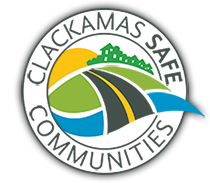How Can I Recognize Child Abuse and Neglect?
A first step in helping or getting help for an abused or neglected child is to identify the signs and symptoms of abuse. There are four major types of child maltreatment: neglect, physical abuse, sexual abuse, and emotional abuse:Neglect is failure to provide for a child's basic needs such as food, clothing, shelter, medical care, education, or proper supervision.
What are the Long-Term Consequences of Child Abuse and Neglect?
The impact of child abuse and neglect is far greater than its immediate, visible effects. These experiences can shape child development and have consequences that last years, even lifetimes. Research now shows that the physical, psychological, and behavioral consequences of child abuse and neglect impact not just the child and family, but the community as a whole.Physical ConsequencesThe immediate physical effects of abuse can range from relatively minor, such as a bruise or cut, to severe, such as broken bones, internal bleeding, or even death.
How Can I Prevent Child Abuse and Neglect?
As an individual and as a member of your community, you have the power to prevent child abuse and neglect. Here are some ways to contribute:Understand the problem. Child abuse and neglect affect children of all ages, races, and incomes. Understand the terms. Child abuse and neglect take more than one form. Federal and State laws address four main types of child maltreatment: physical abuse, physical or emotional neglect, sexual abuse, and emotional abuse. Often more than one type of abuse or neglect occurs within families. Understand the causes. Most parents don't hurt or neglect their children intentionally. Many were themselves abused or neglected. Very young or inexperienced parents might not know how to take care of their babies or what they can reasonably expect from children at different stages of development. Support programs that support families. Donate your time or money, if you can. Report suspected abuse and neglect. All citizens have a responsibility to protect those who cannot protect themselves. If you suspect a child is being abused or neglected, call the police or the child abuse hotline at 503-657-6802 Spread the word. Help educate others in your community about child abuse and neglect. See the list below for sources of free materials. Strengthen the fabric of your community. Know your neighbors' names and the names of their children, and make sure they know yours. Give stressed parents a break by offering to watch their children. Volunteer. If you like interacting with children, great, but you do not have to volunteer directly with kids to contribute to prevention. Be ready in an emergency. We've all witnessed the screaming-child-in-the-supermarket scenario. If we are parents, at least once that screaming child has been ours. Most parents take the typical tantrum in stride. But what if you witness a scene in the supermarket or anywhere else where you believe a child is being, or is about to be, physically or verbally abused? If you find yourself in a situation where you believe a child is being or will be abused at that moment, there are steps you can take.






